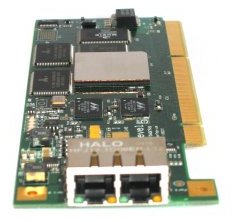Table of Contents
How to configure dnsmasq for gPXE
Why DNSMasq
- It is small and lightweight
- Easy to setup (includes its own tftp server)
- It may already be running on your linux-based router

Defining the gPXE-specific options
Add the following settings to your /etc/dnsmasq.conf file:
dhcp-boot=pxelinux.0 enable-tftp tftp-root=/var/lib/tftpboot
for pxe chaining use this:
dhcp-match=gpxe,175 dhcp-boot=net:#gpxe,gpxe.pxe dhcp-boot=pxelinux.0
the '#' above is a 'not', not a comment
See: http://www.thekelleys.org.uk/dnsmasq/docs/dnsmasq.conf.example for more information
Chain-booting gPXE into SAN-boot / installation
These settings will cause your existing PXE to load gPXE, and then gPXE to boot off an iSCSI target. If the target can not be booted, it is left registered so that you can install an operating system to it.
enable-tftp tftp-root=/var/lib/tftpboot # place your gpxe.pxe (either built yourself or from http://rom-o-matic.net here) dhcp-match=gpxe,175 # tags the request with net:gpxe if the gPXE option was supplied in DHCP request dhcp-option=175,8:1:1 # turn on the keep-san option to allow installation dhcp-boot=net:#gpxe,gpxe.pxe # Here #gpxe means 'not gpxe': that is the tag is not set dhcp-option=net:gpxe,17,"iscsi:ta.rg.et.ip::::iqn.yyyy-mm.reversed-domain-name:identifier"
A potential problem and a fix
According to this page: http://blog.nella.org/?p=335
gPXE wants to find the boot filename in the dedicated slot in the reply packet. dnsmasq does something clever/stupid (I’m not sure which) and puts it someplace else. You have to use the –dhcp-no-override option to dnsmasq to make gPXE see the filename.
Here is an online version of the man page for dnsmasq. it contains this switch explanation:
--dhcp-no-override Disable re-use of the DHCP servername and filename fields as extra option space. If it can, dnsmasq moves the boot server and filename information (from dhcp-boot) out of their dedicated fields into DHCP options. This make extra space available in the DHCP packet for options but can, rarely, confuse old or broken clients. This flag forces "simple and safe" behaviour to avoid problems in such a case.
Under OpenWRT
OpenWRT is a replacement for factory firmware commonly found in wireless routers. dnsmasq is configured a bit differently when you use OpenWRT. Use these commands to set the dhcp-supplied filename. This eventually gets passed as the –dhcp-boot command-line option to dnsmasq. But, this way, it is saved in the router's flash and will get saved/restored with the rest of the system's configuration.
uci set dhcp.@dnsmasq[0].dhcp_boot=http://4.3.2.1/gpxe-dir/script-name, uci commit dhcp
